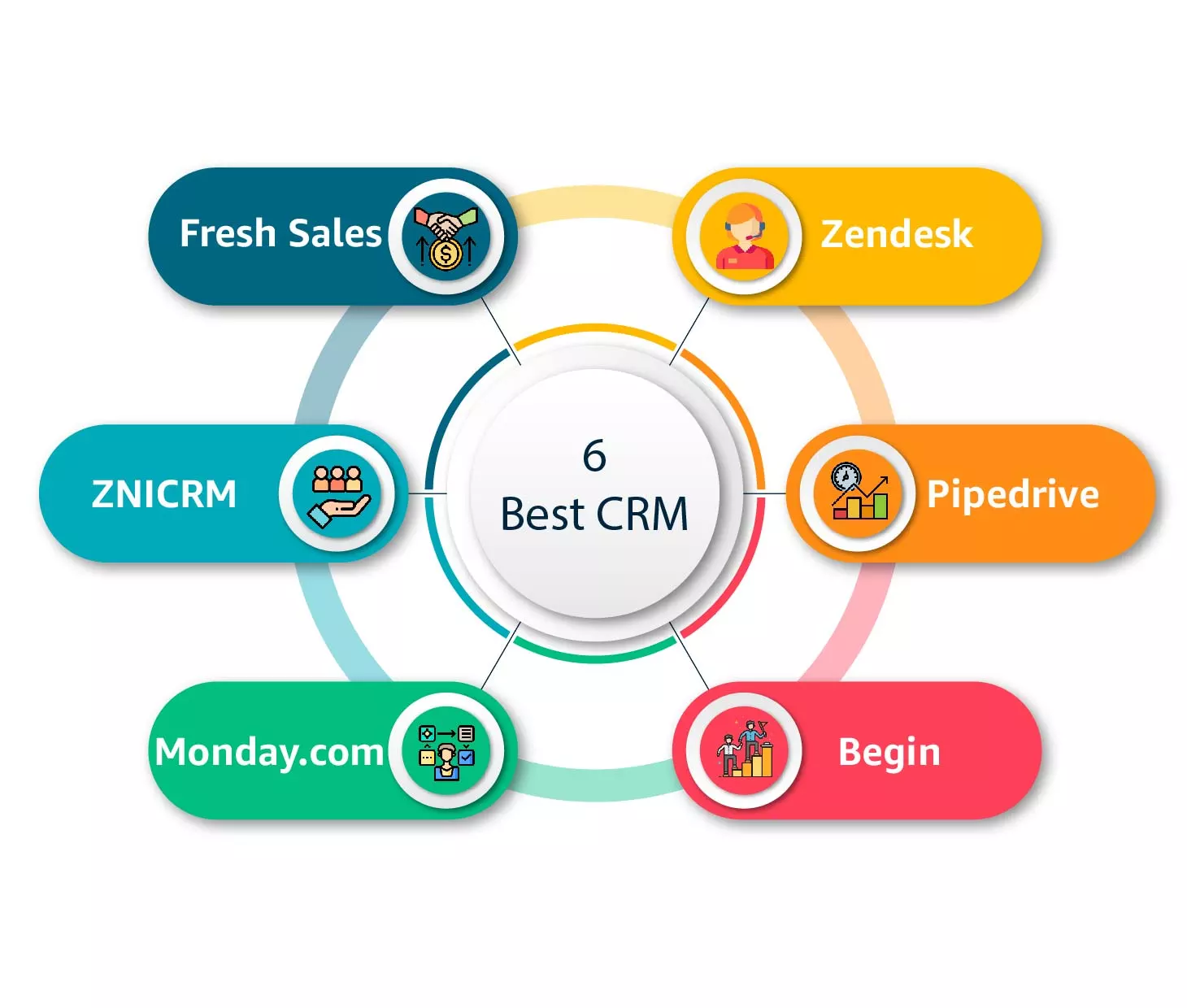All in one crm for small business – In today’s competitive business landscape, small businesses need every advantage they can get. An all-in-one CRM (Customer Relationship Management) system can be a game-changer, providing a centralized platform to manage all aspects of customer interactions, streamline operations, and drive growth.
With an all-in-one CRM, small businesses can gain a 360-degree view of their customers, track sales performance, automate marketing campaigns, and provide exceptional customer support—all from a single, user-friendly interface.
Key Features of an All-in-One CRM for Small Businesses

An all-in-one CRM is a comprehensive software solution that combines various essential business functions into a single platform. It provides small businesses with a centralized hub to manage their customer relationships, sales, marketing, and customer support activities.
Contact Management
An all-in-one CRM offers robust contact management capabilities that allow small businesses to centralize and organize customer information. Key features include:
- Centralized customer database with detailed contact profiles
- Automatic contact capture from various channels (e.g., email, phone, social media)
- Segmentation and filtering options for targeted marketing campaigns
- Contact history tracking for better customer understanding
Sales Tracking
An all-in-one CRM provides sales tracking features that enable small businesses to monitor and manage their sales pipeline effectively. Key features include:
- Real-time visibility into the sales pipeline
- Lead tracking and qualification
- Opportunity management with customizable sales stages
- Sales forecasting and reporting for data-driven decision-making
Marketing Automation
An all-in-one CRM offers marketing automation features that help small businesses streamline and automate their marketing efforts. Key features include:
- Email marketing campaigns with personalized messaging
- Social media integration for multi-channel marketing
- Lead nurturing sequences to convert prospects into customers
- Marketing analytics for campaign performance tracking
Customer Support
An all-in-one CRM provides customer support features that enable small businesses to provide efficient and personalized support to their customers. Key features include:
- Centralized ticket management system
- Live chat and email support channels
- Knowledge base for self-service customer support
- Customer feedback collection and analysis
The integration of all these features into a single platform offers several benefits for small businesses:
- Improved efficiency and productivity
- Enhanced customer experience
- Better decision-making based on data insights
- Reduced costs and increased ROI
Benefits of Using an All-in-One CRM
An all-in-one CRM offers a multitude of advantages that can significantly enhance the efficiency and effectiveness of small businesses. By consolidating various functions into a single platform, businesses can streamline their operations, improve data management, and foster better collaboration among teams.
According to a study by Nucleus Research, businesses that implement an all-in-one CRM experience an average ROI of $5.60 for every dollar invested. The same study found that these businesses achieve a 24% increase in sales productivity and a 19% improvement in customer satisfaction.
Improved Efficiency, All in one crm for small business
- Eliminates the need for multiple logins and switching between different applications, saving time and reducing the risk of errors.
- Automates repetitive tasks, such as data entry and lead generation, freeing up time for more strategic initiatives.
- Provides a centralized view of all customer interactions, enabling teams to respond quickly and efficiently to inquiries.
Enhanced Data Management
- Stores all customer data in a single location, ensuring data accuracy and consistency.
- Eliminates data silos and ensures that all teams have access to the same information.
- Provides tools for data analysis and reporting, enabling businesses to gain insights into customer behavior and trends.
Better Collaboration
- Facilitates seamless communication between sales, marketing, and customer support teams.
- Provides a shared platform for tracking customer interactions and progress.
- Encourages knowledge sharing and best practice adoption.
Choosing the Right All-in-One CRM for Your Business

Choosing the right all-in-one CRM for your business is essential for maximizing its benefits. Consider these key factors:
- Business Size:Small businesses with fewer than 100 employees typically need a CRM with basic features, while larger businesses may require more advanced capabilities.
- Industry:Different industries have specific CRM needs. For example, a healthcare provider may require a CRM that integrates with medical records.
- Specific Needs:Identify your specific business requirements, such as marketing automation, sales tracking, or customer support.
To compare different all-in-one CRM solutions, use the following table:
| Feature | CRM A | CRM B | CRM C |
|---|---|---|---|
| Lead Management | Excellent | Good | Average |
| Sales Tracking | Very Good | Good | Fair |
| Customer Support | Good | Excellent | Fair |
| Marketing Automation | Fair | Good | Excellent |
| Pricing | Affordable | Mid-range | Expensive |
To evaluate and select the best CRM for your business, follow these steps:
- Define your business requirements and priorities.
- Research and compare different CRM solutions.
- Consider the cost and implementation time.
- Get feedback from users and stakeholders.
- Implement the CRM and monitor its effectiveness.
Implementation and Best Practices
Implementing an all-in-one CRM for small businesses involves several key steps and best practices to ensure a successful and effective deployment.
The implementation process typically includes:
- Data migration:Transferring existing customer data from previous systems or spreadsheets into the new CRM.
- User training:Providing comprehensive training to users on the CRM’s features and functionality.
- Ongoing support:Establishing a plan for ongoing technical support and assistance to users.
To maximize the effectiveness of the CRM, businesses should adopt best practices such as:
- Data hygiene:Regularly cleaning and updating customer data to ensure accuracy and completeness.
- Process automation:Automating repetitive tasks within the CRM to streamline workflows and save time.
- Regular reporting:Generating regular reports to track key metrics and identify areas for improvement.
Implementation Checklist
To assist with the implementation process, businesses can use a checklist or guide that includes the following steps:
- Define the project scope and goals.
- Select a CRM vendor and solution.
- Plan for data migration.
- Develop a training plan for users.
- Implement the CRM solution.
- Provide ongoing support to users.
- Monitor and evaluate the CRM’s performance.
Case Studies and Success Stories
Numerous small businesses have experienced remarkable transformations by implementing all-in-one CRMs. These case studies offer valuable insights into the benefits and challenges associated with CRM adoption, showcasing real-world examples of how businesses have leveraged these tools to achieve success.
Improved Customer Relationships
- Case Study: Acme Corporation
Acme Corporation, a small manufacturing company, implemented an all-in-one CRM to manage customer interactions. By centralizing customer data and tracking communication history, they gained a comprehensive understanding of their customers’ needs and preferences. This resulted in personalized and timely interactions, leading to increased customer satisfaction and loyalty.
Increased Sales and Revenue
- Case Study: XYZ Marketing Agency
XYZ Marketing Agency, a small digital marketing agency, utilized an all-in-one CRM to streamline their sales process. The CRM provided them with real-time insights into customer behavior, enabling them to identify opportunities for cross-selling and upselling. This resulted in increased sales conversions and a significant boost in revenue.
Enhanced Collaboration and Productivity
- Case Study: ABC Construction Company
ABC Construction Company, a small construction firm, implemented an all-in-one CRM to improve collaboration among its project teams. The CRM facilitated seamless communication, task management, and document sharing, resulting in increased productivity and reduced project timelines.
Epilogue

By implementing an all-in-one CRM, small businesses can unlock a wealth of benefits, including improved efficiency, increased productivity, enhanced customer satisfaction, and ultimately, accelerated business growth. With its comprehensive functionality, ease of use, and affordable pricing, an all-in-one CRM is an indispensable tool for any small business looking to succeed in the modern marketplace.
FAQ Corner: All In One Crm For Small Business
What are the key benefits of using an all-in-one CRM for small businesses?
All-in-one CRMs offer numerous benefits for small businesses, including improved efficiency, better data management, enhanced collaboration, increased sales, and improved customer satisfaction.
How do I choose the right all-in-one CRM for my business?
When selecting an all-in-one CRM, consider factors such as your business size, industry, specific needs, budget, and ease of use. Compare different solutions and read reviews to find the best fit for your company.
What are some common challenges faced when implementing an all-in-one CRM?
Common challenges include data migration, user adoption, and ongoing maintenance. However, with proper planning and support, these challenges can be overcome to ensure a successful implementation.